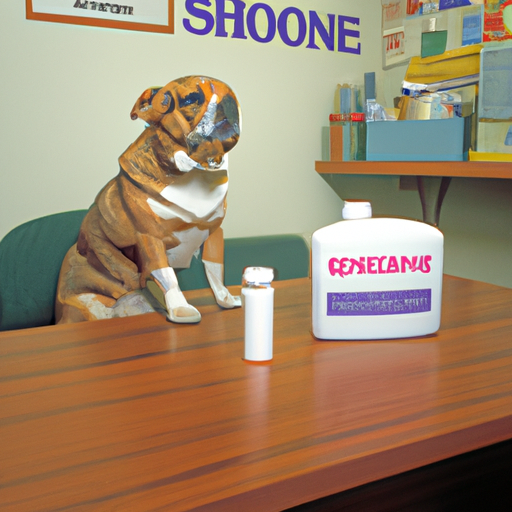Understanding the medications your furry friend needs is a vital part of being a responsible caregiver. One such medication is Prednisolone. Let’s dive deeper into this drug, its uses, potential side effects, and more.
What is Prednisolone?
Prednisolone is a potent anti-inflammatory and immunosuppressive drug often prescribed to dogs. It’s a steroid medication, specifically a glucocorticoid, which mimics the effects of natural hormones produced by your dog’s adrenal glands.
Why is Prednisolone Prescribed for Dogs?
Prednisolone is prescribed for a multitude of reasons, including but not limited to:
- Allergic reactions
- Inflammation
- Autoimmune diseases
- Certain types of anemia
- Certain forms of cancer
It works by suppressing the immune system, reducing inflammation and discomfort for your dog.
Potential Side Effects of Prednisolone
Despite its effectiveness, Prednisolone can have side effects. Remember, as a caregiver, keep an eye out for any changes in your dog’s behavior or physical condition. Here are some potential side effects:
- Increased thirst and urination
- Increased hunger
- Weight gain
- Panting
- Skin and coat changes
| Side Effects | Signs |
|---|---|
| Increased Thirst and Urination | Your dog drinks or urinates more than usual |
| Increased Hunger | Your dog seems hungry all the time |
| Weight Gain | Noticeable increase in your dog’s weight |
| Panting | Your dog pants even when it’s not hot or after exercise |
| Skin and Coat Changes | Dull coat, thinning hair, or red, itchy skin |
How to Administer Prednisolone
Prednisolone is available in tablet form and should be given orally, as directed by your vet. The dosage and length of treatment are based on your dog’s medical condition and response to treatment. Do not abruptly stop this medication without consulting the vet as it can lead to withdrawal symptoms.
Frequently Asked Questions
Q: Can my dog overdose on Prednisolone?
A: Yes, an overdose can be harmful. If you suspect an overdose, seek veterinary attention immediately.
Q: Is Prednisolone safe for all dogs?
A: Prednisolone is generally safe, but it may not be suitable for dogs with certain health conditions like diabetes or kidney disease. Always consult with your vet.
Q: Can Prednisolone cause behavior changes in my dog?
A: Yes, some dogs may experience behavior changes, including increased aggression or anxiety. If you notice such changes, consult your vet.
Remember, as a loving caregiver, understanding your dog’s medication is crucial for their health and well-being. Always consult with your vet for any concerns or questions related to your dog’s health.



